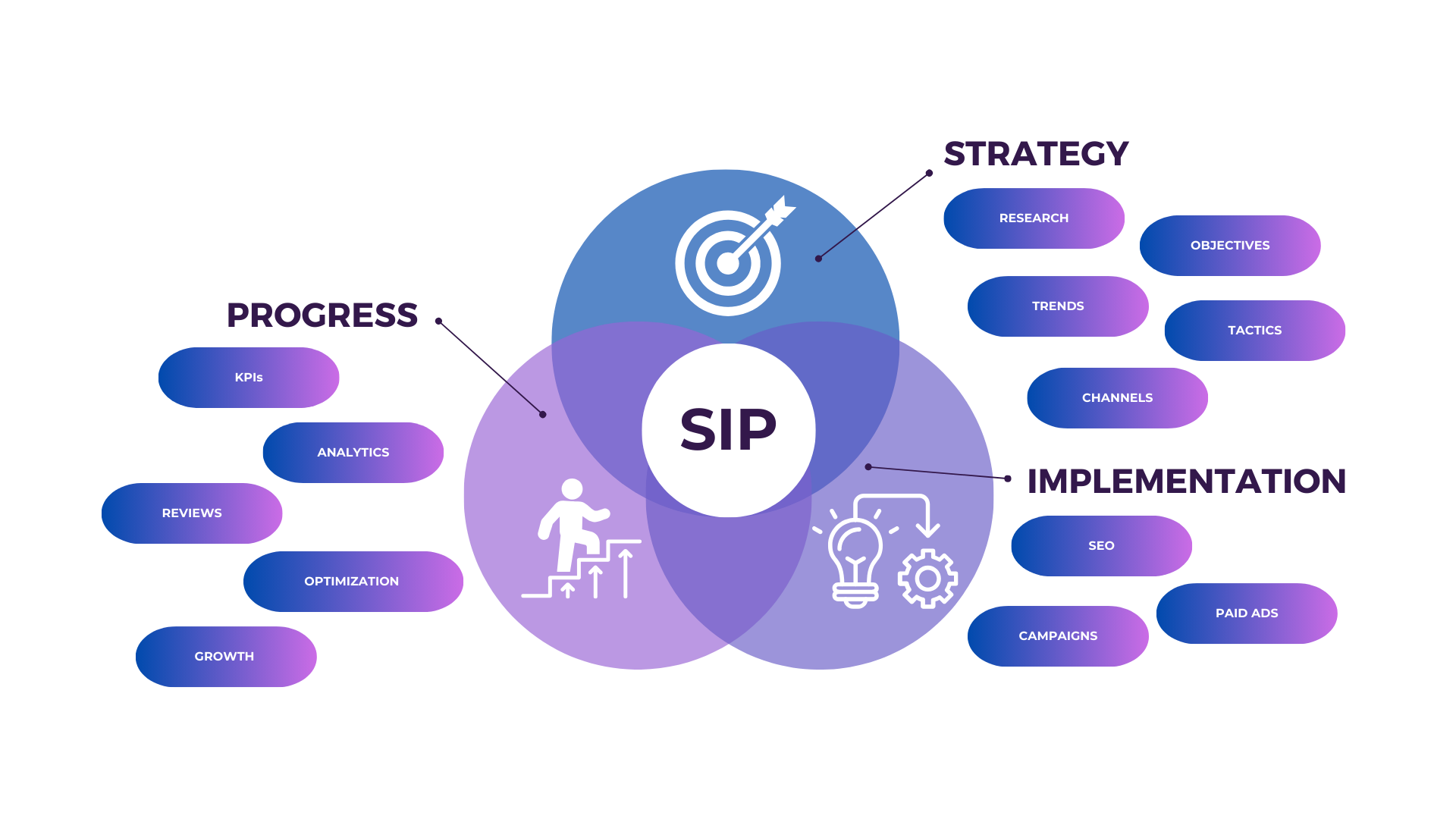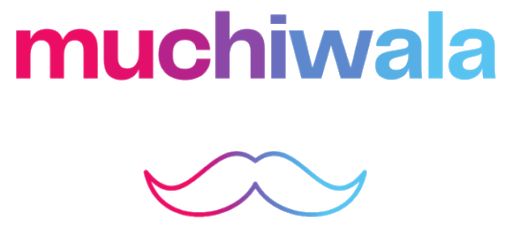Introduction:
At Muchiwala, we employ the SIP (Strategy, Implementation, Progress) framework to drive success in Digital marketing.
The strategy involves developing targeted plans aligned with client goals.
Implementation focuses on executing these plans effectively across various channels.
Progress involves continuous monitoring and optimization based on performance metrics to ensure sustained growth and effectiveness.
Strategy
We first create a strategy based on comprehensive market research, a deep understanding of the client’s business objectives, and a detailed analysis of the target audience’s needs and behaviors.
By aligning these insights with industry trends and competitive analysis, we develop a customized plan that sets clear goals and defines actionable tactics to drive meaningful results.
This strategic foundation allows us to effectively allocate resources, choose the right channels, and continuously refine our approach to maximize ROI and achieve our clients’ business goals.
Implementation
Then we implement the strategy across key channels, such as SEO and paid ads.
For SEO, this involves optimizing on-page elements like meta tags, headers, and content, improving site structure, and building high-quality backlinks.
For paid ads, we carefully craft targeted campaigns, including search and display ads, to reach the right audience with compelling ad copy and precise targeting.
We continuously monitor and adjust these efforts based on performance data to enhance effectiveness, drive targeted traffic, and achieve the desired business outcomes. This comprehensive implementation ensures that all aspects of the digital marketing strategy work in harmony to maximize results.
Progress
Finally, we monitor its progress based on various reporting standards, closely tracking key performance indicators (KPIs) such as website traffic, conversion rates, click-through rates, and user engagement metrics.
Through detailed analytics and regular performance reviews, we assess how well the implemented strategies are performing against the set objectives. We then use this data to make informed adjustments and optimizations, refining our approach to improve effectiveness and efficiency.
This continuous optimization process involves testing different strategies, analyzing results, and adapting to emerging trends or changes in the market. By staying proactive and responsive, we ensure that our digital marketing efforts remain aligned with the client’s goals and deliver sustained, measurable growth.
How does our SIP framework benefit us?
Effective strategy implementation and progress tracking are crucial for several reasons:
Enhanced Ad Performance and ROI: Continuous monitoring and optimization of KPIs, such as click-through rates and conversion rates, ensure that ad strategies are refined to achieve the best possible return on investment. This leads to more effective campaigns and better utilization of ad spend.
Data-Driven Adjustments: Detailed analytics and regular performance reviews provide actionable insights that guide strategic adjustments. By making data-driven decisions, the agency can adapt campaigns to improve results and respond to market changes effectively.
Increased Client Satisfaction: Regular updates and demonstrated progress toward client goals build trust and showcase the value of the agency’s services. This helps in maintaining strong client relationships and justifying the investment in paid advertising efforts.

